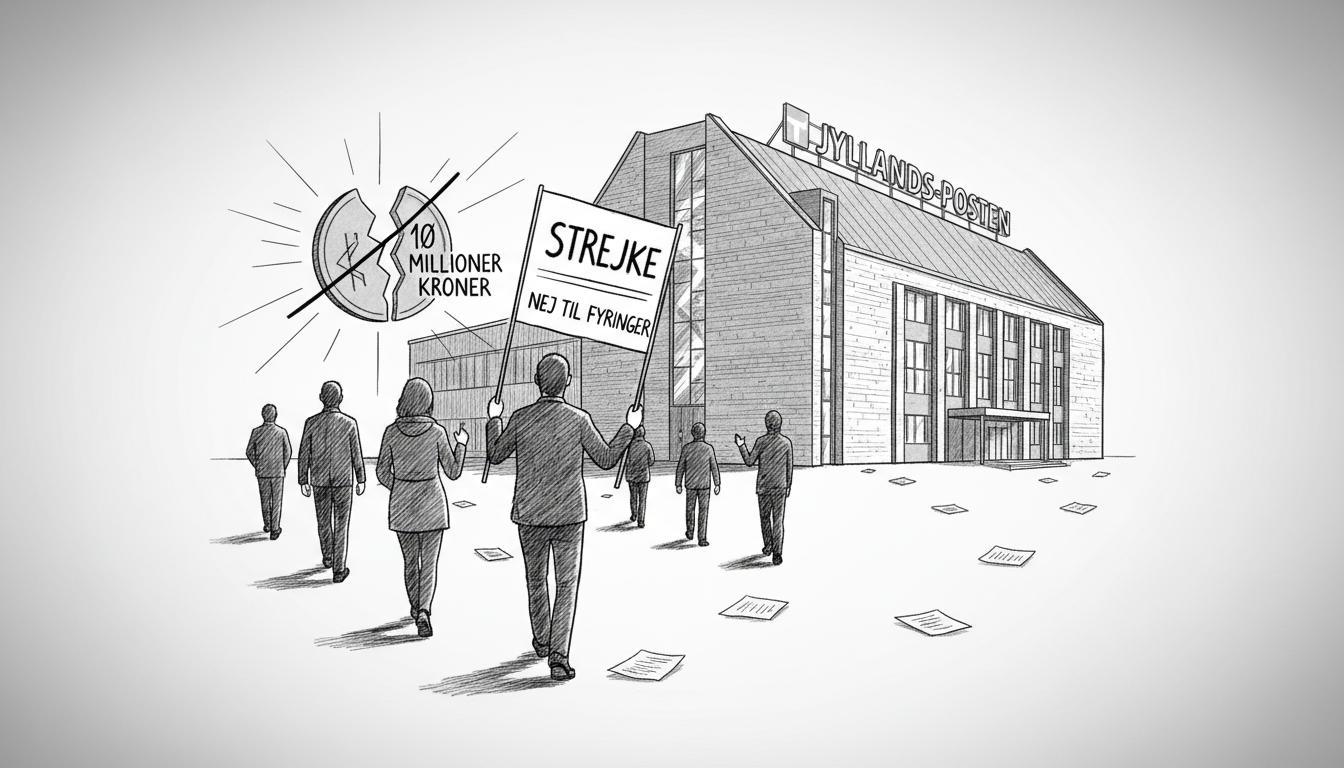Journalists at Denmark's prominent newspaper Jyllands-Posten have walked off the job in protest against management's handling of budget negotiations. The staff initiated the work stoppage after what they describe as unacceptable behavior during recent talks about cost-cutting measures.
The strike action began following days of escalating tensions between journalists and management. Employees had previously expressed no confidence in leadership through sharply worded statements. Now they have taken more direct action by stopping work completely until Wednesday.
According to worker representatives, journalists felt management presented them with an ultimatum during final negotiations. Union officials described the situation as having "a gun to their heads" in the eleventh hour of discussions. The breakdown in talks represents a significant escalation in the ongoing labor dispute.
Workers cite multiple grievances driving their protest. They accuse management of disorderly and unacceptable conduct throughout weeks of negotiations. Staff members claim the company never genuinely sought to avoid layoffs despite public statements suggesting otherwise. Many journalists feel misled about the willingness to find savings outside of salary reductions.
Employees also contend the proposed austerity measures for the next two years violate collective bargaining agreements. The conflict centers on management's demand to cut ten million Danish kroner from operations. Journalists first learned about these financial targets just three weeks ago, creating what they see as an unreasonable timeline for negotiation.
The strike also represents an act of solidarity with colleagues facing imminent termination. Workers specifically mentioned standing with coworkers scheduled to be dismissed Wednesday morning at 7 AM. This marks the second round of job cuts at the publication, following the elimination of 15 positions during the most recent downsizing in 2023.
Jyllands-Posten maintains its headquarters at Aarhus Harbor, where the striking journalists have gathered. The publication represents one of Denmark's most influential media voices, making the labor action particularly noteworthy for both the media industry and public discourse.
This situation reflects broader tensions in Nordic media markets, where traditional newspapers face increasing financial pressure despite their cultural importance. The standoff demonstrates how even established institutions must navigate difficult transitions in the digital era while maintaining positive labor relations.
What happens next could set important precedents for media labor relations across Scandinavia. The outcome may influence how other Nordic publications approach cost-cutting measures while preserving editorial quality and staff morale. The resolution of this conflict will likely be watched closely by media workers and management throughout the region.

